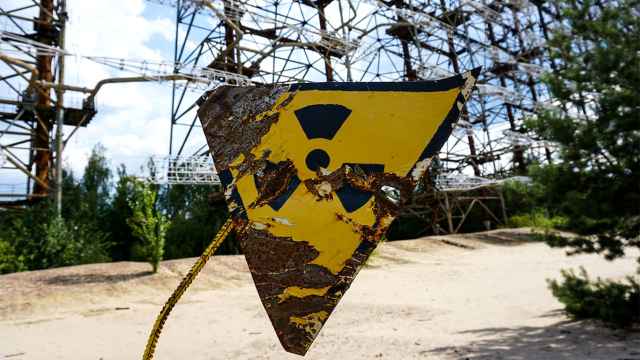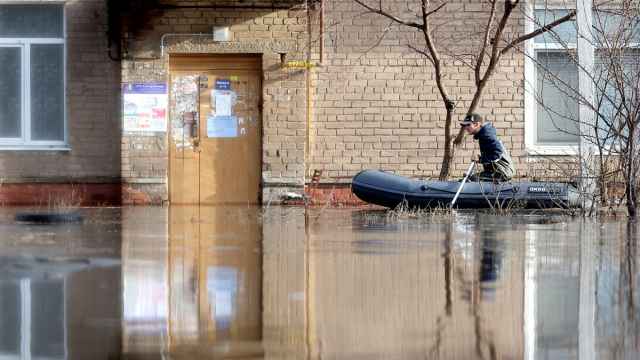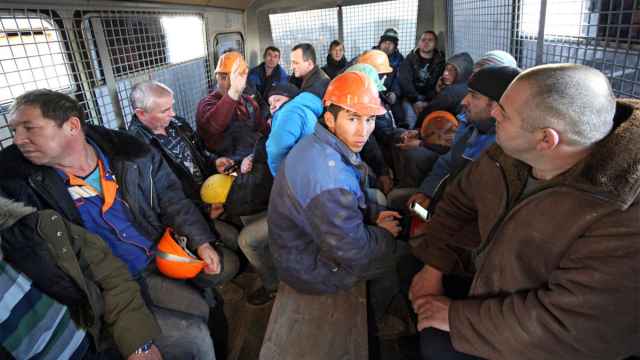Старец: venerable old man, monk
This week in Russia has been dedicated to men — ostensibly to the Защитники Отечества (Defenders of the Fatherland) honored on Feb. 23, but since that includes almost every man over the age of 18, it’s really been All Men, All Week.
Although in the past I’ve written about what to call young men, married men and men in what we like to call the prime of life, for some reason I haven’t written about the older gents in our lives. Позор (for shame!)
One of the most common and neutral words to describe someone getting on in years is пожилой (older) although no one I asked could say exactly how old пожилой is. The general consensus, with a few outliers, was that it means near or of retirement age. Еще живой! (Still alive!) suggested one person, adding: У меня знакомая в юности вышла замуж за пожилого человека (I’ve got a friend who married a much older man when she was young.) Everyone agreed that it was polite to call him пожилой even though he clearly deserved a different descriptor.
In any case, пожилой возраст (old age) is followed by старческий возраст (very old age).
Another polite and neutral way of describing older people in general and men in particular is человек в преклонном возрасте (a person of advanced age). В Европу он попал в преклонном возрасте (He was well on in years when he went to Europe). This might be even more politely described as в почтенном возрасте, which is something like venerable old age. Он уже в почтенном возрасте, и переучиваться ему трудно (He is already quite elderly and it’s hard for him to change his ways).
A very venerable and respected older man might be called старец, although this is rare these days. Аудитория певца — от подростков до глубоких старцев (The singer’s fanbase ranges from teens up to really old men). In Orthodoxy it refers to an older and much revered monk and spiritual adviser. In this case it’s usually just transliterated. Она была близка с известным старцем Парфением (She was close to the well-known starets Parthenius).
Старик (old man) is also a mostly respectful way to refer to an old man, although it is rather familiar (and slangy when used to refer to younger men). But this is the word used to translate Ernest Hemingway’s “The Old Man and the Sea” — “Старик и море” — and it is fine to use in conversational Russian. В фильме добрый старик призывает молодую девушку перестать отчаиваться (In the movie, a kind old man implores a young woman to stop despairing).
Sometimes старик means man: Старики со старушками проживут в отдельных домиках (Old men and women will live in separate houses). Sometimes it means old folks of both genders: Старикам хотя бы есть о чём вспомнить (At least old folks have something to remember).
Old men have their own adjective — стариковский — and Russians seem to have a lot of notions about what is old-mannish. I have come across стариковские немощи (old man’s frailty); стариковское любопытство (old man’s curiosity); стариковский гнев (old man’s anger); и стариковский голос (old man’s voice).
If you are very fond of an old man, or if an old man is sympatico, you might call him старичок. По дорожкам прогуливались аккуратные старички (Tidily dressed old gents strolled along the paths). However, старичок sometimes has more the sense of being a little man: Я вижу за столом сухонького старичка с бритым лицом и красным носом (I see a dried up old little old man, close shaven with a red nose, sitting at the table).
On the other hand, nasty old men can be called старикашки, which is something like “poopy old codger.” Этот вредный старикашка был кошмаром многих поколений студентов (That nasty old fart was a nightmare for many generations of students).
You can also call an old guy who is way past his sell-by date старая калоша (an old galosh). Поймет ли старая калоша, что ему говорят и о чем? (Will that old-timer understand that he’s being spoken to and what they’re saying?)
And then there is the expression старый хрен (literally old horseradish). Some folks insist that old horseradish root is stronger and more powerful than young, just-harvested horseradish, so that it’s actually a compliment to a man’s virility. But other folks say the opposite: an old horseradish root is dried up and ugly. Most of the time these days it seems to refer to an old guy well past his prime who still expresses interest in women, usually younger women. Подошёл Павел Витальевич, склонился к Даше, что-то шепнул ей. Ухаживать, что ли, вздумал, старый хрен? (Pavel Vitalyevich walked up and leaned down to Dasha and whispered something to her. Does he plan to court her, the old goat?)
Old men can also be grandfathers, but not everyone can call them that. Some native speakers say that you can only call your actual grandfather дед, дедушка, or дедуля (forms of grandpa in increasing levels of affection). Others say you can refer to any older man that way.
In general, the safest path for foreigners is to err on the side of caution. So I only say дед in sentences like: Её дед приехал из Ростова (Her granddad came to visit from Rostov) or Где ваш дедушка? (Where’s your grandfather?) But some Russians use дед as a fairly neutral word: Ах, какой нам дед встретился в одной деревеньке! (Oh, what an amazing old guy we met in a village!)
Дедуля can imply a sweet old guy, but the speaker might be condescending: На остановке “Архитектурная академия” в автобус зашёл аккуратненький дедуля в чистом сером пальтишке, в отутюженных серых брючках (At the Architecture Academy stop, a natty old fellow in a clean gray jacket and well-pressed gray trousers got on the bus).
The last kind of старики are not old at all — they are just your friends, people you call when it’s time for a celebration. Старики! Пойдём выпьем! (Hey, guys! Come on and have a drink!)
Excellent idea.






